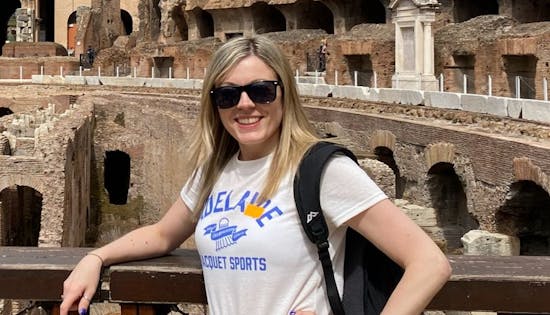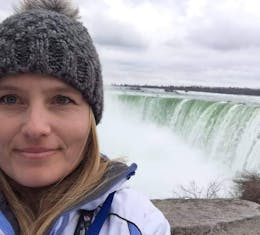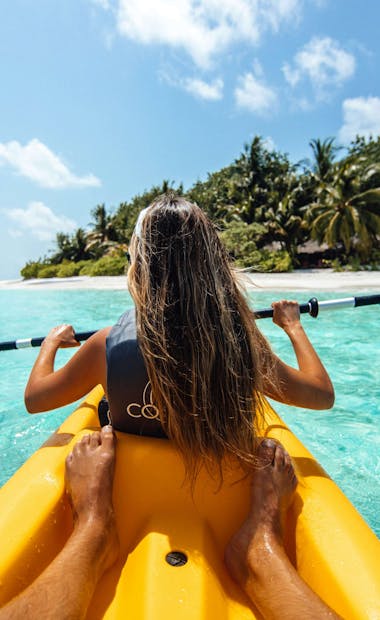Australia Tours
Snorkel the Great Barrier Reef, cruise the Great Ocean Road and sail the Whitsundays
Popular tours
- Save1%
 View Tour
View TourAustralia East Coast Highlights - 21 Days
- Sydney to Cairns
- Age group: 18 - 35
- Max group size: 24
Was:£2,440From£2,416  View Tour
View TourEast Coast Australia - 36 Days
- Sydney to Cairns
- Age group: 18 - 35
- Max group size: 24
From£3,012- Save26%
 View Tour
View TourBrisbane to Cairns Experience: Sand Dunes & the Whitsundays - 10 Days
- Brisbane to Cairns
- Age group: 18 - 39
- Max group size: 20
Was:£1,799From£1,336  View Tour
View TourOz East Coast Adventure - 20 Days
- Brisbane to Cairns
- Age group: 18 - 49
- Max group size: 22
From£2,149- Save1%
 View Tour
View TourUltimate Sydney - 7 Days
- Sydney to Sydney
- Age group: 18 - 35
- Max group size: 30
Was:£636From£630  View Tour
View TourOz East Coast Adventure - 28 Days
- Sydney to Cairns
- Age group: 18 - 45
- Max group size: 28
From£2,749
Australia Tours
Welcome to the land Down Under, where adventure awaits at every turn. Australia, a vast and diverse continent, is a paradise for explorers, nature enthusiasts, and thrill-seekers alike. With its stunning landscapes, unique wildlife, and vibrant cities, Australia is a destination that promises unforgettable experiences. Join us on a virtual journey as we unveil the wonders of this extraordinary country, perfect for your Australia tours and holidays.
Natural Wonders: Australia boasts some of the world's most breathtaking natural wonders. Explore the iconic Great Barrier Reef, a vibrant underwater ecosystem teeming with colourful marine life. Immerse yourself in the stunning landscapes of the Australian Outback, where vast deserts, rugged canyons, and ancient rock formations create a captivating backdrop. Don't miss the majestic Uluru (Ayers Rock), an awe-inspiring monolith that glows with fiery hues at sunrise and sunset.
Wildlife Encounters: Australia is home to an array of unique and fascinating wildlife. Get up close and personal with kangaroos, koalas, and wombats in their natural habitat. Visit Kangaroo Island, a haven for wildlife enthusiasts, to spot sea lions, penguins, and a plethora of bird species. Witness the mesmerising spectacle of whale migrations along the coastlines or head to the Daintree Rainforest to meet prehistoric-looking cassowaries and elusive tree-dwelling mammals.
Captivating Cities: Australia's vibrant cities offer a blend of modernity, culture, and laid-back charm. Start your journey in Sydney, where the iconic Sydney Opera House and Sydney Harbour Bridge dominate the skyline. Explore Melbourne's thriving arts scene, indulge in world-class dining, and discover hidden laneways filled with eclectic boutiques and cafes. Don't forget to visit Brisbane, the gateway to the sunny Gold Coast and the picturesque Whitsunday Islands.
Indigenous Culture: Discover the rich heritage and ancient traditions of Australia's Indigenous peoples. Learn about their deep connection to the land through immersive cultural experiences. Join a guided tour with Indigenous guides who will share stories, traditional dances, and fascinating insights into their history and customs. Walk in the footsteps of the Aboriginal people at sacred sites like Kakadu National Park and the Kimberley region.
Coastal Splendors: With over 35,000 kilometers of coastline, Australia is a beach lover's paradise. Sink your toes into the powdery white sands of the Whitsunday Islands, where you can snorkel in crystal-clear waters and relax on pristine beaches. Experience the laid-back surf culture of Byron Bay or catch a wave at famous surf breaks along the Gold Coast. For a unique encounter, swim with wild dolphins in Western Australia's stunning Shoalwater Islands Marine Park.
Whether you seek adventure, natural wonders, cultural immersion, or city escapades, Australia offers an incredible array of experiences for every traveler. Embark on our Australia tours and holidays to create memories that will last a lifetime. Let us be your guide as you unlock the beauty and excitement of this remarkable destination.
Book your Australia adventure today and get ready to explore the land of endless possibilities!
What is the best time to visit Australia?
The best time to visit Australia depends on the specific regions you plan to explore and the experiences you're seeking. Due to its vast size, Australia experiences different climates and seasons across its various regions. Here's a general overview of the best times to visit different parts of Australia:
Summer (December to February): This is a popular time to visit Australia, especially for beach destinations and outdoor activities. The northern parts of the country, such as Queensland and the Great Barrier Reef, enjoy warm and tropical weather during this time. It's also a great time to explore cities like Sydney and Melbourne.
Autumn (March to May): Autumn in Australia offers mild temperatures and fewer crowds. It's a great time to visit destinations like the Margaret River region in Western Australia, the Barossa Valley in South Australia, or the iconic landmarks in the Red Centre, including Uluru (Ayers Rock).
Winter (June to August): Winter in Australia brings cooler temperatures, especially in the southern parts of the country. This is a great time to visit cities like Sydney, Melbourne, and Adelaide, as well as explore the regions of Tasmania. It's also a good time for wildlife enthusiasts to visit Kangaroo Island.
Spring (September to November): Spring is a beautiful time to visit Australia, as the landscapes come alive with colourful blooms and wildlife activity. It's an ideal time to visit destinations like the Great Ocean Road, the Blue Mountains, or the national parks in Queensland. The weather is generally pleasant, but it can vary across different regions.
It's important to note that Australia's climate can vary significantly between different states and territories. For example, the tropical regions of Northern Queensland have a wet and dry season, while the southern regions experience a more temperate climate. Therefore, it's advisable to research the specific regions you plan to visit and consider their individual weather patterns when determining the best time for your trip.
Additionally, school holidays and major events can impact the availability of accommodations and increase tourist crowds, so it's worth considering those factors when planning your visit as well.
What are the must see places in Australia?
Australia is a vast country with a wide range of diverse and stunning attractions. Here are some must-see places that showcase the natural beauty, cultural heritage, and iconic landmarks of Australia:
Sydney, New South Wales: Visit the Sydney Opera House, explore the historic Rocks area, stroll along Bondi Beach, and take in the panoramic views from the Sydney Harbour Bridge.
Great Barrier Reef, Queensland: Embark on a snorkeling or diving adventure to witness the breathtaking marine life and vibrant coral reefs of the Great Barrier Reef, the world's largest coral reef system.
Uluru (Ayers Rock), Northern Territory: Witness the awe-inspiring red monolith of Uluru, a sacred site for Indigenous Australians. Experience the changing colours of the rock at sunrise or sunset.
Great Ocean Road, Victoria: Drive along the stunning coastal route of the Great Ocean Road, featuring dramatic cliffs, the Twelve Apostles rock formations, and beautiful beaches.
Daintree Rainforest, Queensland: Explore the ancient Daintree Rainforest, one of the oldest tropical rainforests in the world. Take a guided tour, go on a river cruise, and immerse yourself in the lush wilderness.
Kakadu National Park, Northern Territory: Discover the natural and cultural wonders of Kakadu National Park, home to breathtaking landscapes, Aboriginal rock art sites, and diverse wildlife.
Melbourne, Victoria: Enjoy the vibrant city life of Melbourne, known for its art, food, and coffee culture. Explore the laneways, visit art galleries, and experience the city's lively events and festivals.
Blue Mountains, New South Wales: Venture to the Blue Mountains, a UNESCO World Heritage site, and marvel at the stunning scenery, including the Three Sisters rock formation and scenic lookouts.
Tasmania: Discover the rugged wilderness and natural beauty of Tasmania. Explore the pristine landscapes of Cradle Mountain-Lake St Clair National Park, visit the historic Port Arthur, and indulge in delicious local produce.
Kangaroo Island, South Australia: Encounter unique wildlife, including kangaroos, koalas, and sea lions, on Kangaroo Island. Explore stunning coastlines, national parks, and picturesque landscapes.
These are just a few highlights, and there are many more incredible destinations to explore in Australia, depending on your interests and preferences. Whether you're drawn to the cosmopolitan cities, the stunning coastal scenery, or the diverse wildlife, Australia offers a wealth of unforgettable experiences.
Do I need a visa to enter Australia?
Yes, most visitors to Australia require a visa to enter the country. The specific visa you need will depend on the purpose and duration of your visit. Here are some common visa types for tourism and short-term visits:
Electronic Travel Authority (ETA): This is an electronically stored authorisation for short-term visits, typically for tourism or business purposes. ETAs are available to citizens of eligible countries and can be obtained online. They are valid for multiple entries and allow stays of up to three months per visit.
eVisitor visa: Similar to the ETA, the eVisitor visa is also available to citizens of eligible countries. It can be obtained online and is valid for multiple entries. The eVisitor visa allows for longer stays of up to three, six, or twelve months, depending on the applicant's nationality.
Visitor visa (subclass 600): This visa is suitable for those who do not qualify for an ETA or eVisitor visa. It allows for short-term visits for tourism, visiting family or friends, or business purposes. The Visitor visa has different streams, such as the Tourist stream, Sponsored Family stream, and Business Visitor stream, each with specific requirements and conditions.
It's important to check the official Australian Government Department of Home Affairs website or consult with your nearest Australian embassy or consulate for the most up-to-date and accurate information regarding visa requirements based on your citizenship and travel plans. Applying for a visa in advance of your trip is recommended to ensure a smooth entry into Australia.
How long does it take to travel to Australia from the UK?
The duration of a flight from the United Kingdom (UK) to Australia varies depending on factors such as the departure and arrival cities, flight routes, and layovers. Here are some approximate flight times for direct flights from major UK airports to popular Australian cities:
London to Sydney: Direct flights typically take around 21 to 23 hours. Some flights may have layovers, which can extend the total travel time.
London to Melbourne: Direct flights generally take around 21 to 23 hours. Like the Sydney route, there may be flights with layovers that could lengthen the total journey time.
London to Perth: Non-stop flights from London to Perth typically take around 17 to 18 hours.
London to Brisbane: Direct flights from London to Brisbane generally take around 21 to 23 hours, with possible layovers.
London to Cairns: Flights from London to Cairns usually have one or two layovers, and the total travel time can range from 23 to 25 hours or more.
Please note that these are approximate flight durations and can vary depending on factors such as the airline, flight schedule, and any layovers. It's advisable to check with airlines or travel agents for the most accurate and up-to-date information regarding flight durations and itineraries.
Is Australia a safe destination?
Australia is generally considered a safe destination for travellers. The country has a stable political system, well-developed infrastructure, and a low crime rate compared to many other countries. However, as with any travel destination, it's always important to take precautions and be aware of your surroundings. Here are a few safety tips to keep in mind when visiting Australia:
Personal Safety: Australia is generally safe for tourists, but it's always wise to take common-sense precautions. Keep an eye on your belongings, especially in crowded areas and tourist hotspots. Avoid displaying expensive items and be cautious when using ATMs or carrying cash. Use reputable transportation services and be aware of your surroundings, especially at night.
Natural Hazards: Australia is known for its diverse and sometimes harsh natural environment. Be aware of the potential risks associated with the Australian bush, beaches, and national parks. Follow safety guidelines, obey warning signs, and seek local advice when engaging in outdoor activities.
Sun Protection: Australia has a high level of ultraviolet (UV) radiation due to its location near the equator and the hole in the ozone layer. Protect yourself from the sun by wearing sunscreen, a hat, sunglasses, and lightweight clothing that covers your skin. Stay hydrated and seek shade during the hottest parts of the day.
Wildlife: Australia is home to unique and often fascinating wildlife. While encounters with wildlife can be a highlight of your trip, it's important to remember that some animals can pose risks. Respect their natural habitats, avoid approaching or feeding wild animals, and follow any guidelines provided by wildlife authorities.
Road Safety: If you plan to drive in Australia, familiarize yourself with the local road rules and conditions. Australia has vast distances between cities, and driving long distances can be tiring. Take regular breaks, observe speed limits, and be cautious of wildlife on the roads, particularly in rural areas.
Emergency Services: Australia has efficient emergency services, including police, ambulance, and fire departments. In case of an emergency, dial 000 for immediate assistance.
It's always a good idea to have travel insurance that covers medical expenses, trip cancellations, and other unforeseen circumstances. Stay informed about local conditions and follow any travel advisories issued by your home country's government.
By taking basic precautions and being mindful of your safety, you can have a safe and enjoyable experience exploring all that Australia has to offer.
Do I require any vaccinations to visit Australia?
No specific vaccinations are required to enter Australia unless you have visited or transited through a country with a risk of yellow fever within six days before your arrival. In that case, you may need to provide proof of yellow fever vaccination.
However, it is always a good idea to ensure that your routine vaccinations are up to date before traveling to any destination, including Australia. These may include vaccinations for measles, mumps, rubella (MMR), diphtheria, tetanus, pertussis (whooping cough), varicella (chickenpox), and influenza. Vaccination recommendations may vary depending on your age, health condition, and specific travel plans, so it is best to consult with a healthcare professional or travel medicine specialist for personalised advice.
It's also worth considering other factors such as the activities you plan to engage in and the regions you'll be visiting within Australia. For example, if you plan to spend time in rural or remote areas, it may be prudent to discuss vaccinations for diseases like hepatitis A, typhoid, or meningococcal disease.
It's important to note that health recommendations can change, so it's advisable to consult with a healthcare professional or refer to official sources such as the Centers for Disease Control and Prevention (CDC) or the World Health Organisation (WHO) for the most up-to-date and accurate information on vaccinations for travel to Australia.
What is the local currency in Australia, and can I use credit cards?
The currency of Australia is the Australian Dollar (AUD). The currency is denoted by the symbol "$" or "A$". The Australian Dollar is subdivided into 100 cents, and coins come in denominations of 5, 10, 20, and 50 cents, as well as $1 and $2 coins. Banknotes are issued in denominations of $5, $10, $20, $50, and $100.
When visiting Australia, it's a good idea to have some local currency on hand for small purchases, public transportation, and other cash transactions. ATMs (Automatic Teller Machines) are widely available throughout the country, and major credit cards are widely accepted at hotels, restaurants, and larger establishments. However, it's always a good idea to have some cash for situations where cards may not be accepted or for smaller businesses that may prefer cash.
Currency exchange services can be found at international airports, major cities, and tourist areas. Banks and authorised currency exchange offices offer currency exchange services, but it's advisable to compare exchange rates and fees to ensure you get a favourable rate.
If you plan to use your credit or debit card in Australia, notify your bank or card issuer in advance about your travel plans to avoid any potential issues with card usage.
Overall, accessing and using your money in Australia is typically straightforward, and the country has a well-developed banking and financial system to facilitate currency exchange and transactions.
Is Australia a good destination for solo travellers?
Yes, Australia is a fantastic destination for solo travellers. Here are some reasons why Australia is a great choice for solo adventurers:
Safety: Australia is generally considered a safe country for travellers, including solo travellers. The low crime rate and well-regulated tourism industry contribute to a safe and welcoming environment. However, it's always important to exercise common sense and take necessary precautions, just as you would when traveling alone in any destination.
English Language: English is the primary language spoken in Australia, making communication easier for English-speaking solo travellers. You'll find it convenient to interact with locals, seek information, and navigate your way around the country.
Welcoming and Friendly Locals: Australians are known for their friendly and laid-back nature, which creates a welcoming atmosphere for solo travellers. You're likely to encounter locals who are happy to offer assistance, share recommendations, and engage in conversations, making it easier to connect with people and immerse yourself in the local culture.
Varied Experiences: Australia offers a diverse range of experiences that cater to different interests. Whether you're seeking adventure in the Outback, exploring vibrant cities, or enjoying coastal getaways, there's something for everyone. You can choose to join group tours, participate in outdoor activities, or explore cultural attractions at your own pace.
Hostels and Solo Traveler Facilities: Australia has a well-established backpacking culture, with numerous hostels and accommodations that cater specifically to solo travellers. Staying in hostels can provide opportunities to meet fellow travellers, join group activities, and make new friends along the way. Many hostels organise social events, making it easy to connect with other solo travellers.
Accessibility and Infrastructure: Australia has a well-developed tourism infrastructure, making it easy to navigate and explore the country. Transportation options, including domestic flights, buses, trains, and rental cars, provide convenient access to various destinations. Major cities have efficient public transportation systems, making solo travel within cities hassle-free.
Solo-Friendly Activities: Australia offers plenty of activities that are well-suited for solo travellers. Whether it's exploring national parks, hiking trails, joining wildlife encounters, or indulging in city sightseeing, there are numerous opportunities to enjoy your own company and create memorable experiences.
Remember to plan your itinerary in advance, research the destinations you wish to visit, and consider joining organised tours or activities if you prefer a more structured experience. Always inform someone of your travel plans and take necessary precautions to ensure your safety throughout your solo journey.
Is Australia a good destination for family holidays?
Yes, Australia is an excellent destination for family holidays. Here are several reasons why:
Family-Friendly Attractions: Australia offers a wide range of family-friendly attractions and activities suitable for all ages. From beautiful beaches and wildlife encounters to amusement parks and interactive museums, there are endless options to keep children entertained and engaged.
Natural Wonders: Australia is renowned for its stunning natural landscapes and diverse ecosystems. Families can explore iconic sites such as the Great Barrier Reef, the Great Ocean Road, and national parks like Uluru-Kata Tjuta and Kakadu. Kids can learn about unique wildlife, discover ancient rainforests, and engage in outdoor adventures.
Safe and Welcoming: Australia is considered a safe destination, making it a comforting choice for family travel. The country has well-regulated tourism facilities, reliable healthcare systems, and family-friendly accommodation options. The locals are known for their friendliness and hospitality, ensuring a warm welcome for families.
Educational Opportunities: Australia offers educational experiences for children and adults alike. Kids can learn about Aboriginal culture, explore science and interactive exhibits in museums, and discover the rich natural heritage through guided tours and educational programs.
Variety of Accommodation: Australia provides a wide range of family-friendly accommodation options. From hotels and resorts with dedicated facilities for children to holiday homes and apartments with ample space, there are accommodations to suit various preferences and budgets.
Outdoor Adventure: Australia's vast landscape provides opportunities for outdoor adventures that the whole family can enjoy. Families can go hiking, snorkeling, kayaking, or even embark on a camping trip in stunning national parks. There are also family-friendly hiking trails, water parks, and adventure parks catering to different age groups.
Cultural Experiences: Australia's multicultural society offers a chance for families to learn about different cultures and traditions. From vibrant Chinatowns to cultural festivals and events, children can experience diversity firsthand.
Accessibility: Australia has a well-developed infrastructure, making it accessible for families. Major cities have reliable public transportation systems, and domestic flights can connect you to different regions. The country also has family-friendly facilities such as stroller-friendly paths, playgrounds, and kid-friendly dining options.
It's important to plan your itinerary in advance, considering the interests and ages of your children. Check for family discounts, pack appropriate clothing for different weather conditions, and ensure you have travel insurance to cover any unexpected situations. With proper planning, Australia offers an unforgettable and enriching family holiday experience.
Is Australia a good destination for a gap year?
Yes, Australia is a popular destination for a gap year due to its diverse experiences, stunning landscapes, and vibrant culture. Here are several reasons why Australia is an excellent choice for a gap year:
Working Holiday Opportunities: Australia offers working holiday visas for young travellers from eligible countries, allowing them to work and travel in the country for an extended period. This provides an opportunity to earn money while experiencing the Australian way of life and exploring the country.
Cultural Exchange: Australia's multicultural society provides a unique opportunity for cultural exchange. You can interact with people from different backgrounds, learn about Indigenous cultures, and engage in local traditions and festivals.
Travel and Adventure: Australia is vast and offers a wide range of travel experiences. From the stunning beaches of the East Coast to the rugged Outback and the tropical rainforests of Queensland, there is plenty to explore. You can embark on road trips, hike through national parks, snorkel in the Great Barrier Reef, and participate in outdoor adventure activities.
Wildlife and Nature: Australia is home to diverse and unique wildlife. You can encounter kangaroos, koalas, and wombats in their natural habitats. Explore national parks, take wildlife tours, and witness natural wonders such as the Great Ocean Road and the ancient landscapes of the Red Centre.
Volunteer Opportunities: Australia offers various volunteering opportunities across different sectors. You can engage in environmental conservation projects, work with wildlife rehabilitation centres, contribute to community development initiatives, or participate in Indigenous cultural programs.
Personal Growth and Learning: A gap year in Australia allows you to step out of your comfort zone, gain independence, and develop valuable life skills. You can enhance your communication, adaptability, and problem-solving abilities while navigating new experiences and challenges.
Backpacker and Social Scene: Australia has a thriving backpacker culture, making it easy to connect with fellow travellers from around the world. You can stay in backpacker hostels, join group tours and activities, and participate in social events, creating lasting friendships and memorable experiences.
Festivals and Events: Australia hosts a variety of festivals and events throughout the year, including music festivals, cultural celebrations, and sporting events. Joining these events adds excitement and allows you to immerse yourself in the local culture.
It's important to plan your gap year in advance, considering factors such as budget, visa requirements, accommodation, and travel logistics. Research the different regions and activities that align with your interests and goals. Take advantage of the resources available, such as online travel communities and travel agencies specialising in gap year experiences, to help plan your adventure.
What is the food like in Australia?
Australia's food scene is as diverse and dynamic as its multicultural society. From fresh seafood and succulent barbecues to fusion cuisine and artisanal delights, Australia offers a tantalising culinary experience that caters to all tastes. Get ready to embark on a gastronomic adventure as we explore the flavours of this diverse country.
Fresh Seafood: With a coastline stretching thousands of kilometers, Australia is renowned for its exceptional seafood. Indulge in the catch of the day, including juicy prawns, Moreton Bay bugs, succulent oysters, and the famous Tasmanian salmon. Visit bustling fish markets in Sydney, Melbourne, or Brisbane to savour the finest and freshest seafood straight from the ocean.
Barbecue Culture: Australians have perfected the art of barbecuing, and it's an integral part of their culinary culture. Join in the fun at a beachside park or in a local's backyard, where you can savour mouthwatering grilled steaks, sausages (known as "snags"), lamb chops, and marinated seafood. Pair it with a side of fresh salads, grilled vegetables, and a dollop of tangy barbecue sauce for the ultimate Aussie feast.
Indigenous Bush Tucker: Australia's Indigenous cuisine offers a unique and authentic culinary experience. Explore the world of bush tucker, where you can sample ingredients like kangaroo, emu, quandong, bush tomatoes, and native herbs and spices. Join a guided tour or visit specialised restaurants to learn about Indigenous cooking techniques and the significance of native ingredients.
Global Fusion: Australia's multiculturalism has resulted in a vibrant fusion of global flavours. Indulge in diverse culinary delights, from Asian street food to Middle Eastern kebabs, Italian pasta, and Greek souvlaki. Visit buzzing food markets, such as Melbourne's Queen Victoria Market or Sydney's Spice Alley, to savour a melting pot of international cuisines.
Artisanal Produce: Australia takes pride in its high-quality, locally sourced produce. Explore farmers' markets and boutique food stores to discover artisanal cheeses, organic fruits and vegetables, handcrafted chocolates, and specialty products like macadamia nuts and Australian truffles. Don't forget to sample the country's world-renowned wines from regions like the Barossa Valley, Margaret River, and the Yarra Valley.
Café Culture: Australians have a deep love for coffee and brunch culture. Explore the charming laneways of Melbourne or the trendy neighbourhoods of Sydney, and you'll find an abundance of cozy cafes serving aromatic, expertly crafted coffees. Pair your coffee with a delicious smashed avocado toast, fluffy pancakes, or a classic bacon and egg roll.
Decadent Desserts: Indulge your sweet tooth with Australia's delectable desserts. Try the famous Lamingtons (sponge cake coated in chocolate and coconut), Pavlova (meringue topped with fresh fruits and cream), or the creamy and rich custard-filled Vanilla Slice. For chocolate lovers, a visit to the renowned Cadbury chocolate factory in Tasmania is a must.
Australia's culinary landscape is a fusion of flavours, drawing inspiration from its multicultural heritage and abundant natural resources. Embark on a culinary journey during your visit, and you'll discover a delicious tapestry of tastes that will leave you craving for more. From local favourites to international cuisine, Australia's food scene will delight your taste buds and create unforgettable dining experiences.
Can I drink the tap water in Australia?
Yes, the tap water in Australia is generally safe to drink in most urban and rural areas. The country has strict regulations and high standards for water quality, ensuring that tap water meets the required health standards. The water supply is treated and monitored regularly to maintain its safety.
However, it's important to note that there may be some regional variations in water quality due to factors such as local infrastructure, source of water, and potential environmental influences. In remote or rural areas, it's advisable to check with the local authorities or residents about the water quality before consuming tap water.
If you have any concerns about the tap water or prefer to have additional peace of mind, you can choose to drink bottled water, which is readily available in supermarkets, convenience stores, and restaurants throughout Australia. It's important to stay hydrated, especially during hot weather or when engaging in outdoor activities, so having access to safe drinking water is essential.
Additionally, if you're traveling to more remote or outback regions, it's always a good idea to carry a reusable water bottle and fill it with potable water from reliable sources. Campgrounds and national parks usually have designated water points where you can fill your bottles with treated water.
In summary, while tap water is generally safe to drink in Australia, it's always a good idea to check with local authorities or residents about the water quality in specific areas. Stay hydrated and choose the option that makes you feel most comfortable, whether it's tap water, bottled water, or filtered water.
What should I pack for a trip to Australia?
When packing for a trip to Australia, it's important to consider the country's diverse climate and the activities you plan to engage in. Here is a list of essential items to pack for your trip:
- Clothing:
- Lightweight and breathable clothing for the warmer regions and seasons.
- Layered clothing, including a light jacket or sweater, for cooler evenings or if you're visiting southern regions during winter.
- Swimwear, especially if you plan to visit Australia's beautiful beaches or enjoy water activities.
- Comfortable walking shoes or sandals for exploring cities and natural attractions.
- Hat and sunglasses to protect yourself from the strong Australian sun.
- Travel Documents:
- Valid passport with at least six months of validity.
- Visa (if required). Check the specific visa requirements for your country of residence.
- Printed or electronic copies of travel itineraries, hotel reservations, and any other important documents.
- Electronics and Adapters:
- Power adapter suitable for Australian electrical outlets (Type I plug).
- Mobile phone and charger.
- Camera or video equipment, if desired.
- Portable charger or power bank for charging devices on the go.
- Medications and Personal Care:
- Prescription medications, sufficient for the duration of your trip.
- Personal toiletries, including sunscreen, insect repellent, and any necessary items for your specific needs.
- Basic first aid kit with band-aids, pain relievers, and any other essential medications.
- Money and Banking:
- Australian currency (AUD) in cash for smaller purchases or places that may not accept cards.
- Debit or credit cards for larger expenses and convenience. Notify your bank about your travel plans to avoid any issues with card usage.
- Travel Insurance:
- Comprehensive travel insurance to cover medical emergencies, trip cancellations, and other unforeseen circumstances.
- Travel Accessories:
- Lightweight daypack for carrying essentials during day trips or excursions.
- Travel guidebook or maps to help you navigate and explore your destinations.
- Reusable water bottle to stay hydrated.
- Travel locks for securing your luggage.
- Travel umbrella or rain jacket, depending on the season and your travel destinations.
Remember to check the weather forecast for your specific travel dates and destinations in Australia, as the climate can vary significantly across the country. Pack accordingly for the expected temperatures and weather conditions.
Lastly, pack with consideration for any specific activities you plan to undertake, such as hiking gear, snorkeling equipment, or specialized clothing for outdoor adventures.
By packing these essentials, you'll be well-prepared for your trip to Australia, ensuring a comfortable and enjoyable experience.
Why book with The Adventure People?
Why book with The Adventure People?
You may be thinking ‘why should I book with The Adventure People?’. Here are just some of the reasons we stand out:
The Best Value
Not only are our prices usually the best in the market but our leading service coupled with the financial protections we offer mean you won’t find better value anywhere else.
Your Dedicated Travel Expert
Our travel team is the best in the business and we’re not just saying that. The moment you make an enquiry we’ll pair you with your own dedicated expert who is on hand to answer your questions, look after your booking and make sure you have a fantastic time.
No Waiting Times
We only have one phone number with no automated services. When you contact us you’re straight through to a member of our team and a human!
Financial Protection
We are ATOL certified, members of ABTA and run a Trust account for our packages ensuring you’re fully financially protected.
Flexible Payments
We offer low deposits and monthly payment plans at no extra cost.
Flights
We can add flights to any trip you book with us and we’re happy to help with Round The World tickets!
Accommodation
We work with wonderful accommodation providers and our team can quote almost any hotel in the world at the best prices.
Transfers & Extras
We can easily add airport transfers or extras to any booking. Our team will always quote the best possible price and be able to update your booking.
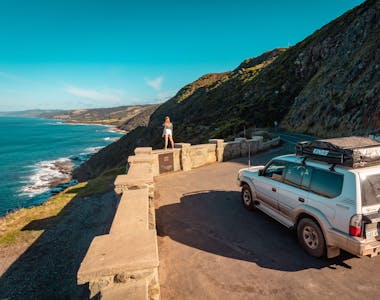

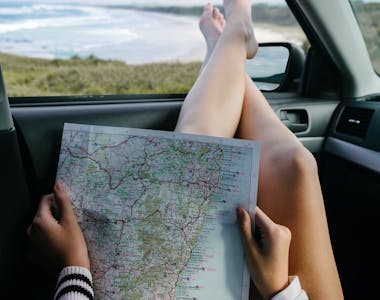
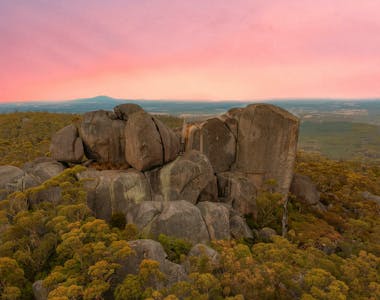
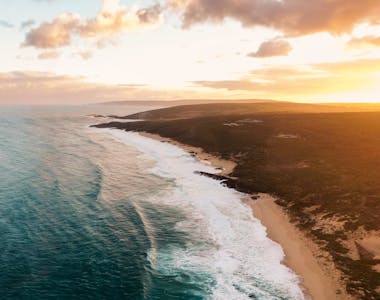

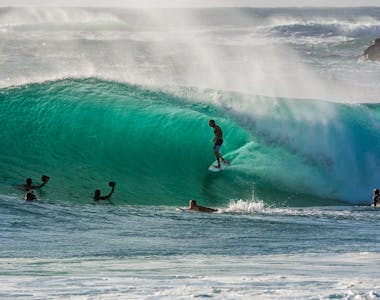
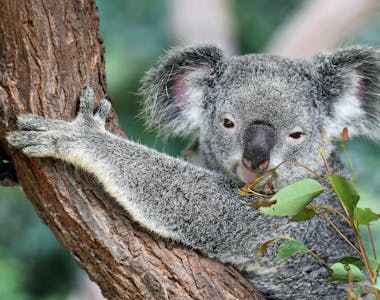
Book With Confidence
Monthly Payments
Spread the costs with no interest or additional fees
Best Price Guarantee
We won't be beaten on price. If you find this adventure at a lower price please get in touch!
Reserve now & pay later
Reserve your adventure today and pay later, free of charge
ATOL protected
Book with confidence
Hold your space today, for free
or book your trip with a deposit and then pay the rest in instalments.
Reserve your flights with us
Add flights to your booking and we'll take care of the rest. You'll get 24/7 support from our team & ATOL protection.
Speak to our experts
Call or email our expert team to find out more and help with ideas and planning.
